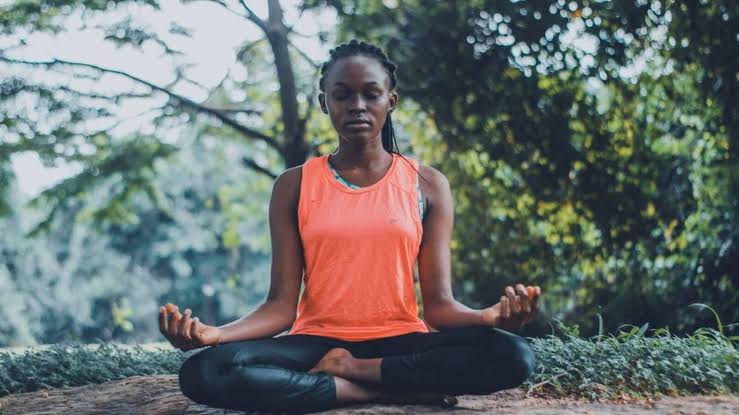
Stressed Out? Here’s How Mindfulness and Meditation Will Help You Navigate the World.


In a world fraught with anxiety, stress, and environmental and humanitarian disasters, people are looking for ways to cope. Many have turned to practices originating in ancient eastern philosophies for guidance. Among these is mindfulness, which is linked to meditation.
What Does Mindfulness Actually Mean?
The original translation of the Pali word “sati” is “remembering.” It was about remembering your ethics, the right way to behave in each moment. In the modern context, it is usually translated as “being conscious and aware of the present moment.”
Mindfulness, or “awareness,” is a practice to bring you back to the present. You’d use your senses, your breath, or your body as in a yoga practice. To be mindful is to be present, to be open. You’re not trapped in the past or in the future.
This helps to calm you down because a lot of depression or depressive thoughts are linked to the past and things that we regret, while a lot of anxiety is linked to the future. Research shows that if people experience a lot of anxiety, it’s often because their mind is in the future, worrying about what will happen next. The same applies to depression, where the mind goes back into the past, ruminating over things that have happened or perceived wrongdoings.
The present moment frees you from those aspects. Your attention is focused on exactly what’s here and now. Within that, you can bring a sense of discernment.
Linking mindfulness to compassion is also beneficial. If the present moment is uncomfortable – experiencing a friend’s suffering or our own – you can bring compassion to that. Mindfulness and compassion go hand in hand.
How Do We Include Meditation in Our Daily Lives?
Mindfulness is often achieved through meditation, a practice of sitting still and focusing the mind on the senses or the breath, but we can also remain mindful throughout the day. Making your meditation as familiar a practice as brushing your teeth or having a shower can be seen as mental hygiene.
Establishing a daily practice at a particular time of the day helps make it less negotiable. As soon as we start negotiating with ourselves – should I practice or shouldn’t I – we often default to less healthy habits like scrolling the internet or watching repetitive news stories.
There are various categories of contemplative practices: calming, insight, positive qualities, engagement, and shadow integration. Soothing practices, like deep abdominal breathing, can shift us from chaos to calm, although this may not be suitable for everyone. Moving practices, like expressive movement or yoga carried out with conscious awareness, can also prepare the mind for meditation.
How Important Are Insight and Self-Awareness?
Insight practices help us gain an understanding of our own habits. Bringing your mind back to the present can shift you out of tendencies toward depression or anxiety. If we have experienced traumatic incidents, these practices are best done in parallel with psychotherapy.
Practices for cultivating positive, pro-social qualities such as curiosity, wonder, compassion, joy, and gratitude are also valuable. The mind has a negativity bias, learning quickly from negative experiences. Training the mind to focus on positive gestures of care, like someone making you a cup of tea, opens the mind to gratitude, appreciation, and wonder.
Difficult emotions like anger and sadness provide valuable information. Anger often results from fear, and hurt from sadness. By looking at our experiences rather than being swamped by them, we learn to understand what we are feeling and what we need.
Advice for People Wanting to Refocus Their Lives
There’s a saying: there are 84,000 dharma doors, or 84,000 different ways to find the truth. This reflects the variety of paths people can take to discover their own truth.
Ask yourself, “When do I feel content, at ease, or joyful?” Use these positive emotions to reassure yourself that you’re on the right track. Tune into your own happiness, joy, contentment, and ease, and let them guide you to the practices that will bring you the most benefit at different stages in your life.
Article By Suzy Nyongesa.
